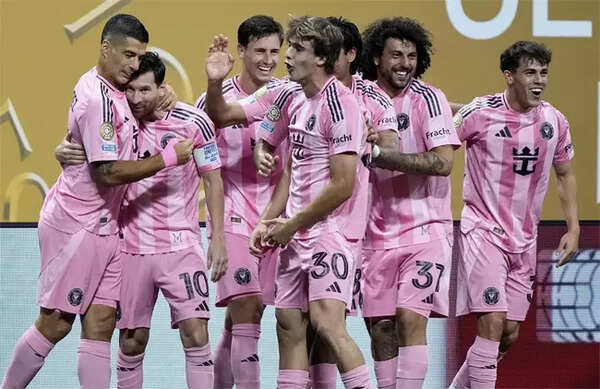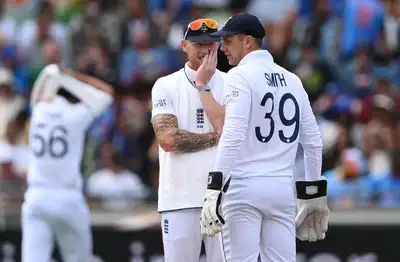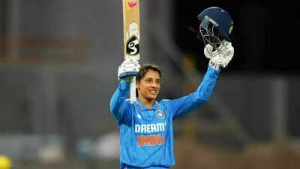As the FIFA Club World Cup 2025 heads into the Round of 16, the revamped format has generated numerous compelling narratives. From an expanded field of participants and a redesigned trophy to a greater number of host cities and the introduction of referee cameras, this edition held in the United States is mirroring the scale of its namesake, the quadrennial World Cup.
Organizers have lauded the event as "a celebration of hope, excellence, and pride, embodying the journey of every club, player, and fan united in their passion for the beautiful game." With several teams making their debut and the tournament now spanning a full month, its significance has undoubtedly grown.
The competition features teams from all six confederations: 12 from Europe, 6 from South America, 4 each from Africa, Asia, and North/Central America and the Caribbean, 1 from Oceania, and 1 from the host nation, completing the 32-team lineup.
With the group stage concluded and the final 16 teams determined, this Club World Cup has already delivered its share of upsets, classic underdog stories, and intense clashes, both on and off the field.

Auckland City, ranked 4,971st in the Opta Power Rankings, entered the Club World Cup as the lowest-ranked team. They found themselves in a group with Bayern Munich, Benfica, and Boca Juniors. It's important to note that Auckland City's squad consists largely of amateur players competing in New Zealand's Northern League, a league of just 12 teams.
Their tournament began with a harsh 0-10 defeat against Bayern Munich, the largest margin of victory this year, followed by a 0-6 loss to Benfica.
Facing Argentinian powerhouse Boca Juniors in their final match, already eliminated and with nothing to lose, Auckland defied expectations. In a true David-vs-Goliath encounter, the amateurs prevented Boca from reaching the Round of 16, a result the Argentinians desperately needed to advance. The 1-1 draw was all the more remarkable considering the 4,819-point ranking difference and Boca's storied history.
Lionel Messi's Inter Miami, drawn into a group with Porto, Al Ahly, and Palmeiras, were widely predicted to struggle. However, led by Messi and supported by Luis Suarez, Jordi Alba, and Sergio Busquets, the Herons defied expectations and secured a spot in the Round of 16, finishing second in Group A.

Although Miami only managed one win, it proved sufficient to qualify. After a draw against Al Ahly in their opening match, they faced Portuguese giants Porto. In a match that seemed daunting for Miami, Messi's brilliance, highlighted by a stunning free kick, secured a 2-1 victory. A 2-2 draw against Brazil's Palmeiras in their final group game confirmed their place in the knockout stage.
Tensions flared on the final matchday in Group E, where River Plate needed a win against Inter to advance to the last 16. However, Inter dashed their hopes. After the final whistle, River's Marcos Acuna and Inter's Denzel Dumfries nearly engaged in a physical altercation, requiring intervention from teammates and staff. The rivalry, which began three years prior, saw Acuna taunt Dumfries with a reference to Argentina's victory over the Netherlands in a heated quarter-final at the 2022 World Cup.
The challenges weren't limited to on-field clashes. Heatwaves and extreme temperatures forced teams to provide ice baths and cooling towels to their players. Borussia Dortmund took the extreme measure of having substitutes watch their match against Mamelodi Sundowns from the locker room to shield them from the scorching heat. Their coach likened the conditions to a "sauna." Thunderstorms and lightning also led to delays in at least five matches.
In addition to the weather, US Immigration and Customs Enforcement (ICE) and Customs and Border Protection (CBP) have a strong presence at the tournament, requiring non-citizens to provide proof of legal status to attend matches.
With less than a year until the 2026 FIFA World Cup, co-hosted by the United States, Mexico, and Canada, the Club World Cup has highlighted several potential issues. From the quality of the pitches to the heat and overall weather conditions, the tournament has not been without its challenges.
Real Madrid's Jude Bellingham criticized the poor pitch conditions, stating, "The pitches aren’t great here. The pitches aren’t great at all," after his team's match against Pachuca at the Bank of America Stadium in Charlotte.
Despite the underdog stories, major upsets, and expanded field, the tournament remains a stage for Europe's elite. Powerhouses like Real Madrid and Manchester City are still favored to win the competition. However, Seattle Sounders, Urawa Reds, Ulsan, Wydad AC, and Pachuca, were eliminated without earning a single point.
Group A: Palmeiras, Inter Miami Group B: Paris Saint-Germain, Botafogo Group C: Bayern Munich, Benfica Group D: Flamengo, Chelsea Group E: Inter Milan, Monterrey Group F: Borussia Dortmund, Fluminense Group G: Manchester City, Juventus Group H: Real Madrid, Al Hilal
Newer articles
Older articles
 Wimbledon 2025: Dates, Prize Money, and How to Watch Live in US & India
Wimbledon 2025: Dates, Prize Money, and How to Watch Live in US & India
 Gujarat Cricket Association Set to Launch T20 Tournament in 2025-26 Season
Gujarat Cricket Association Set to Launch T20 Tournament in 2025-26 Season
 Praggnanandhaa Joins Carlsen's Team Liquid Ahead of Esports World Cup Showdown
Praggnanandhaa Joins Carlsen's Team Liquid Ahead of Esports World Cup Showdown
 India vs. England 2025: Broad Warns England of Lethal Indian Pace Attack Ahead of Lord's Test
India vs. England 2025: Broad Warns England of Lethal Indian Pace Attack Ahead of Lord's Test
 Smith Poised for Grenada Test Return After Finger Injury Recovery
Smith Poised for Grenada Test Return After Finger Injury Recovery
 Raducanu Shuts Down Alcaraz Romance Rumors, Confirms US Open Doubles Partnership
Raducanu Shuts Down Alcaraz Romance Rumors, Confirms US Open Doubles Partnership
 Asia Cup 2025: ACC Eyes September Launch Amid Easing India-Pakistan Tensions
Asia Cup 2025: ACC Eyes September Launch Amid Easing India-Pakistan Tensions
 Pant's Fearless Batting Sparks Gilchrist Comparisons: Chappell's Honest Assessment of India Star's Twin Tons Against England
Pant's Fearless Batting Sparks Gilchrist Comparisons: Chappell's Honest Assessment of India Star's Twin Tons Against England
 Mandhana Makes History: First Indian Woman to Score Centuries in All Cricket Formats
Mandhana Makes History: First Indian Woman to Score Centuries in All Cricket Formats
 Prithvi Shaw Acknowledges Career Setbacks, Cites Distractions and Poor Choices
Prithvi Shaw Acknowledges Career Setbacks, Cites Distractions and Poor Choices